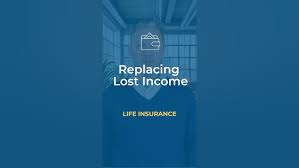
When people think of insurance, they often imagine health plans, car coverage, or home protection. But one of the most overlooked—and potentially life-saving—types is income protection insurance, also known as disability insurance. It’s designed to replace a portion of your income if you’re unable to work due to illness, injury, or disability. But the big question remains: can it really replace your lost income?
How Income Protection Works
Unlike health insurance, which pays for medical expenses, income protection insurance provides direct cash payouts—a percentage of your salary—to help cover living expenses when you can’t earn a paycheck. Most policies replace 50% to 70% of your income, ensuring that essentials like rent, food, and bills are covered.
Types of Coverage
- Short-Term Disability Insurance
- Covers income for a few weeks to months.
- Useful for temporary conditions like surgeries or recovery from an accident.
- Long-Term Disability Insurance
- Provides benefits for years—or even until retirement—depending on the policy.
- Critical for serious conditions like cancer, stroke, or permanent injuries.
The Limitations
While income protection is a lifeline, it rarely replaces 100% of your salary. Insurers cap benefits to prevent people from earning more while not working. Additionally, policies may:
- Require waiting periods before payouts begin.
- Exclude certain pre-existing conditions.
- Limit benefits depending on your job classification.
Why It Still Matters
Even partial income replacement can mean the difference between financial survival and financial ruin. Without it, many people would be forced to:
- Rely on savings that run out quickly.
- Depend on family for support.
- Face bankruptcy after prolonged work absences.
Final Takeaway
Insurance might not fully replace every dollar you earn, but it can provide a crucial safety net when life throws the unexpected your way. Think of it as a financial parachute—not a luxury, but a necessity—especially if your household depends on your paycheck.
